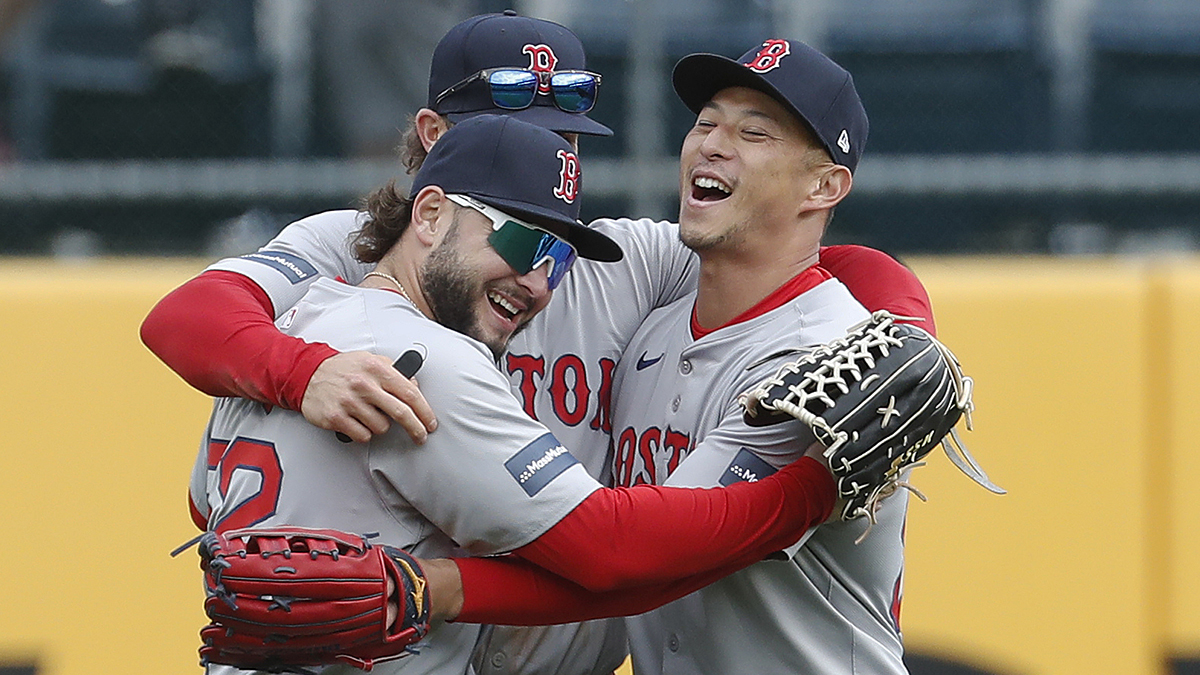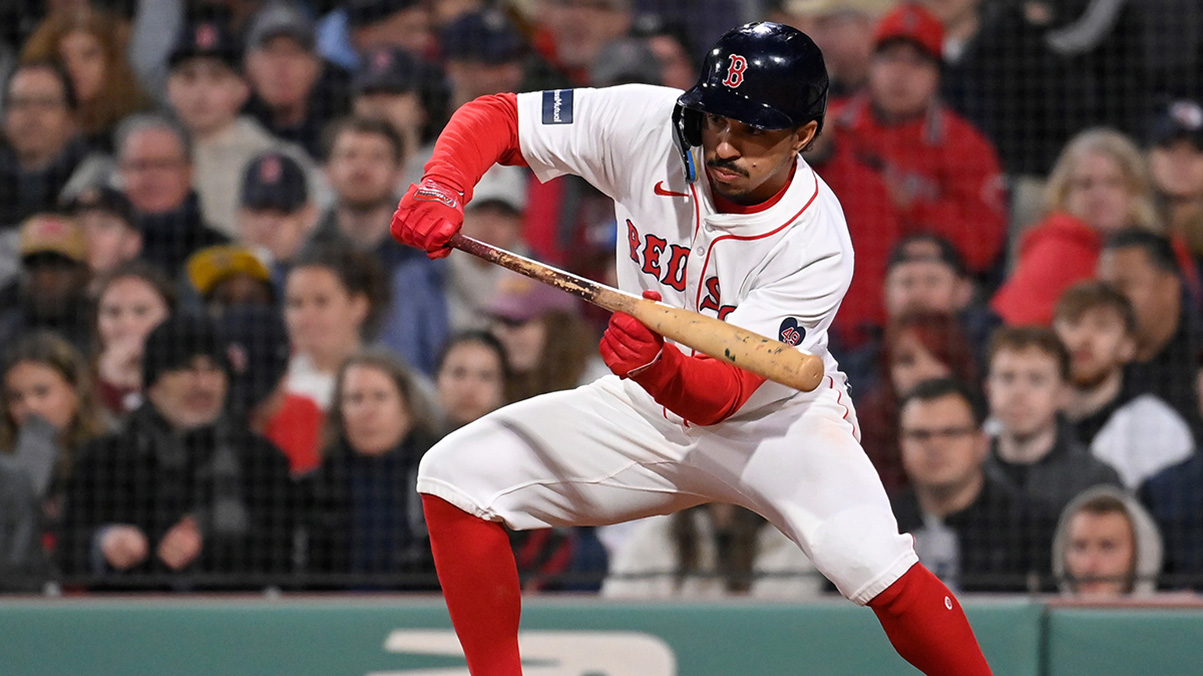
By Sean McAdam
CSNNE.com Red Sox InsiderFollow @sean_mcadam
BOSTON -- Think of Red Sox history as a movie, say, like The Wizard of Oz.
Through 1966, they were drab and mostly uninteresting, as though seen in black-and-white.
Then, suddenly, everything changed. In 1967, almost overnight, they appeared in color -- vibrant, bold and captivating.
What we now know as Red Sox Nation was born during the season of the Impossible Dream, when Carl Yastrzemski won the Triple Crown and Jim Lonborg won the Cy Young Award.
But Dick Wililams called the shots. Every last one.
"Even with the years Carl and Jim had,'' said former second baseman Mike Andrews, "we never would have won the pennant without him. No way. He put all the parts together and he orchestrated everything.''
Williams went on win two straight World Series with the Oakland A's in 1972 and 1973 and won another pennant with the 1984 San Diego Padres, but for a generation of New England baseball fans, he will forever be identified with the 1967 Red Sox when the franchise permanently captured the hearts of the region.
Boston Red Sox
A surprise choice to manage the Red Sox in the winter of 1966, Williams, true to his bold nature, made a startling prediction upon his hiring: "I'll say one thing -- we'll win more than we lose.''
Today, such a statement would be a given for a franchise whichlast had a losing season in 1997. But pre-1967, it was heresy. The previous year, the Sox had finished a half-game out of last place in a 10-team league. The Sox had last won a pennant in 1946.
The notion of contention was, at best, far-fetched. But not to Williams.
"At the time, I thought, 'He's right, because he won't have it any other way,' '' said Andrews. "That kind of confidence was exactly what Boston needed at the time.''
Before Williams's arrival, the Red Sox were an underachieving bunch, a collection of individuals rather than a true team. Discipline and accountability were non-existent and owner Tom Yawkey, wary of losing, had grown detached.
Williams established a new tone right from the beginning. He stressed hard work and fundamentals and played no favorites.
"To turn around the franchise, they needed someone tough,'' said Andrews. "Dick was the toughest they could get. He was unforgiving.''
The new manager's demanding style was a shock to the veteran players, even after they had been warned by those who'd spent time under Williams in the minors --Andrews, Reggie Smith, Joe Foy and others -- about what to expect.
Williams wasn't above clashing with players, or publicly chastising them. He famously likened talking to first baseman George Scott to "talking to cement.'' And late in the summer of 1969, when he benched Yastrzemski, a favorite of Yawkey, for a perceived lack of hustle, he probably wrote his own pink slip, delivered two months later.
But Williams got results. Young players such as Andrews, Smith and Rico Petrocelli blossomed. Veterans such as Yastrzemski took their game to the next level.
"I remember talking to a ('67) teammate once,'' said Andrews. "I said, 'Isn't it amazing that we all had our best years playing for him?' He would just prod you to be the best.''
Williams wasn't much for communicating with players. It was a different era with few guaranteed contracts and little player security. He didn't feel the need to explain his actions.
He could be gruff and intimidating. Red Sox broadcaster Jerry Remy remembers his rookie season of 1975 with the California Angels, when Remy made the mistake of being thrown out trying to steal third base.
"He wouldn't talk to me for two weeks,'' recalled Remy.
He constantly used the threat of a return trip to Triple-A on young players and wasn't afraid to wield his authority.
But few could match his baseball acumen.
"He was the most knowledgeable guy I ever played for,'' said Remy. "A lot of the things they do now with video, he did on his own. He was way ahead of everyone else. He was always two innings ahead, very sharp.''
And despite his crusty demeanor, Williams could be principled and loyal. When Oakland owner Charlie Finley attempted to fire Andrews for committing two errors in the 1973 World Series, Williams strongly backed his player over his owner . . . and resigned in principle over the incident when the Series was over.
"The way he stood up for me was just wonderful,'' marveled Andrews. "He had character. He was his own man. I just loved the man.''
He managed into the late 1980s, but by then the game -- or more accurately, the culture of the game -- had passed him by. Players wanted explanations and Williams wasn't the explaining type.
"I don't think he ever would have changed,'' said Andrews with admiration. "He was who he was.''
In the end, Williams didn't manage the Red Sox for as long as Butch Hobson, who got to finish his third season. He managed far fewer games than Eddie Kasko, who replaced him but never took the team to the playoffs. But his impact was incalculable.
Without Williams, there would have been no Impossible Dream. And without the Impossible Dream season, the Red Sox, as we know them, would be very, very different.
Said Andrews, who may well have played more games under Williams than any other major league player: "He turned the whole tide from that point on.''
Sean McAdam can be reached at smcadam@comcastsportsnet.com. Follow Sean on Twitter at http:twitter.comsean_mcadam


